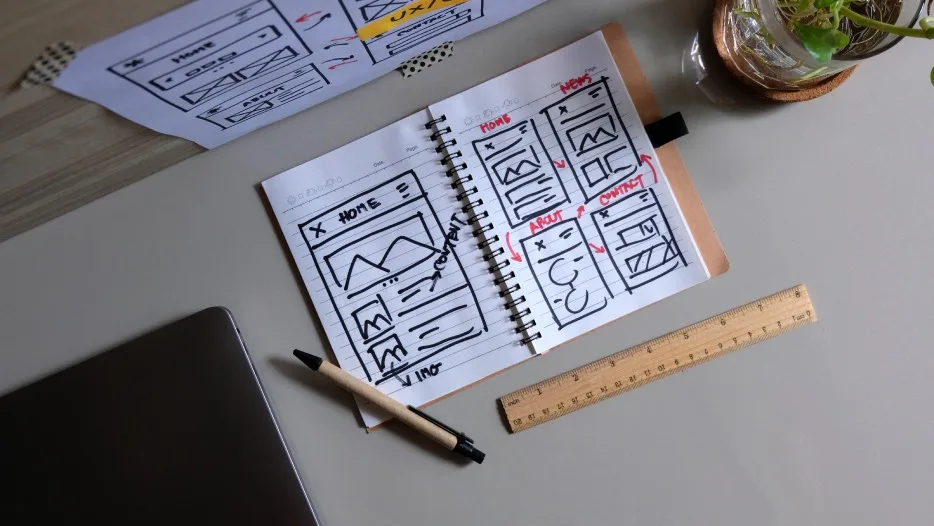As you know, Sanchelima and Associates bring you useful information each week to help you protect your brand. For example, last week, we talked about selling your invention through Amazon, so if you’re interested in this new market, we invite you to check it out.
Following this topic, many inventors and entrepreneurs wonder whether they need to register their prototypes when developing a new product. Protecting your invention early on is crucial, but understanding the right steps can be confusing.
In this article, we will explore the importance of registering your prototype, what forms of protection are available, and when to hire a patent attorney in Miami to help you with every legal action.
Table of Contents
ToggleWhat is a prototype?
A prototype is an early model or version of a product that demonstrates its functionality, design, and potential. It is typically created to test and refine the concept before moving into full production or market launch.
Normally, prototypes can vary in complexity, ranging from simple sketches or mock-ups to fully functioning product versions. The main goal of a prototype is to identify flaws, gather feedback, and make improvements before finalizing the design, helping inventors and developers ensure the product meets its intended purpose and user needs.

Why is it important to register your prototypes?
As attorneys in Miami, we’ve seen many companies or inventors who don’t think they need to protect the early versions of a product. However, registering your prototype is a critical step in protecting your intellectual property and ensuring that your invention remains yours.
It establishes legal ownership, making it harder for others to copy or profit from your idea without permission. By taking this step early, you can safeguard your innovation from theft or infringement and set the foundation for future commercialization, investment, and licensing opportunities. While not always mandatory, registration provides peace of mind and a competitive edge in the marketplace.
Documents necessary to register a prototype
Several documents are typically required to register a prototype, depending on the type of protection you seek (e.g., patents, trademarks, or design registrations) and the country’s legislation or the state in which you will register it. Hereunder, we share with you the common documents needed:
- Detailed description: A comprehensive prototype description, including its function, purpose, and how it works. This should highlight the innovative aspects of the invention.
- Technical drawings or diagrams: Clear sketches or diagrams illustrating the prototype’s design and components. These help examiners understand the product’s structure and operation.
- Patent application: If you seek a patent, you must file a formal application with the relevant patent office.
- Prototype photographs: In addition to the drawings, sometimes you will need to add photos of the prototype from different angles.
- Inventor information: Personal details of the inventor(s), including names, addresses, and contact information.
- Legal statements: A declaration of ownership and originality confirming that the prototype is your original creation.
- Filing fees: Payment of the required filing fees for patent, trademark, or design registration.
Benefits of registering a prototype
Lastly, if you are still hesitating to register your prototype, consider the significant advantages of doing it.
1.- Protects intellectual property rights
The first and most obvious reason is that it safeguards your invention by granting you exclusive rights to make, use, sell, or license the product for a specified period.
This protection ensures that no one else can legally exploit your innovation without your consent. Intellectual property protection prevents others from reverse-engineering or copying your invention.
2.- Establishes ownership
Registering your prototype creates an official legal record that establishes you as the rightful owner of the invention. This is particularly important in cases where there may be disputes over who invented a product first or when multiple parties are involved in its development.
A formal registration provides evidence of the date of invention and ownership, which can be crucial if legal challenges arise, whether from competitors, collaborators, or potential infringers. Or it’s a benefit for you when entering partnerships, licensing agreements, or sales discussions.

3.- Encourages investment
For inventors and startups looking to attract investors, registering your prototype can significantly boost your chances of securing funding. Investors want to ensure that any product they are backing is protected from competition and legal challenges.
A registration demonstrates that you have taken proactive steps to safeguard your intellectual property, which reduces the risk of infringement or disputes that could arise later.
4.- Increases market competitiveness
Having exclusive rights to your prototype gives you a significant advantage in the marketplace. Once registered, you can prevent competitors from creating similar products, thus ensuring that your innovation stands out.
In addition, a registered prototype gives customers confidence that they are purchasing a unique and protected product. Many consumers value originality and innovation, and registration allows you to highlight these qualities.
5.- Supports licensing and monetization
If you plan to license your invention to other companies or individuals, having it registered significantly strengthens your position in negotiations. A registered prototype assures potential licensees that the invention is legally protected and that you have exclusive rights to negotiate with it.
Now that you have learned the importance of registering your invention, don’t forget to contact us. A member of our team will be happy to assist you. Remember we are experts in trademark legal issues and more.



